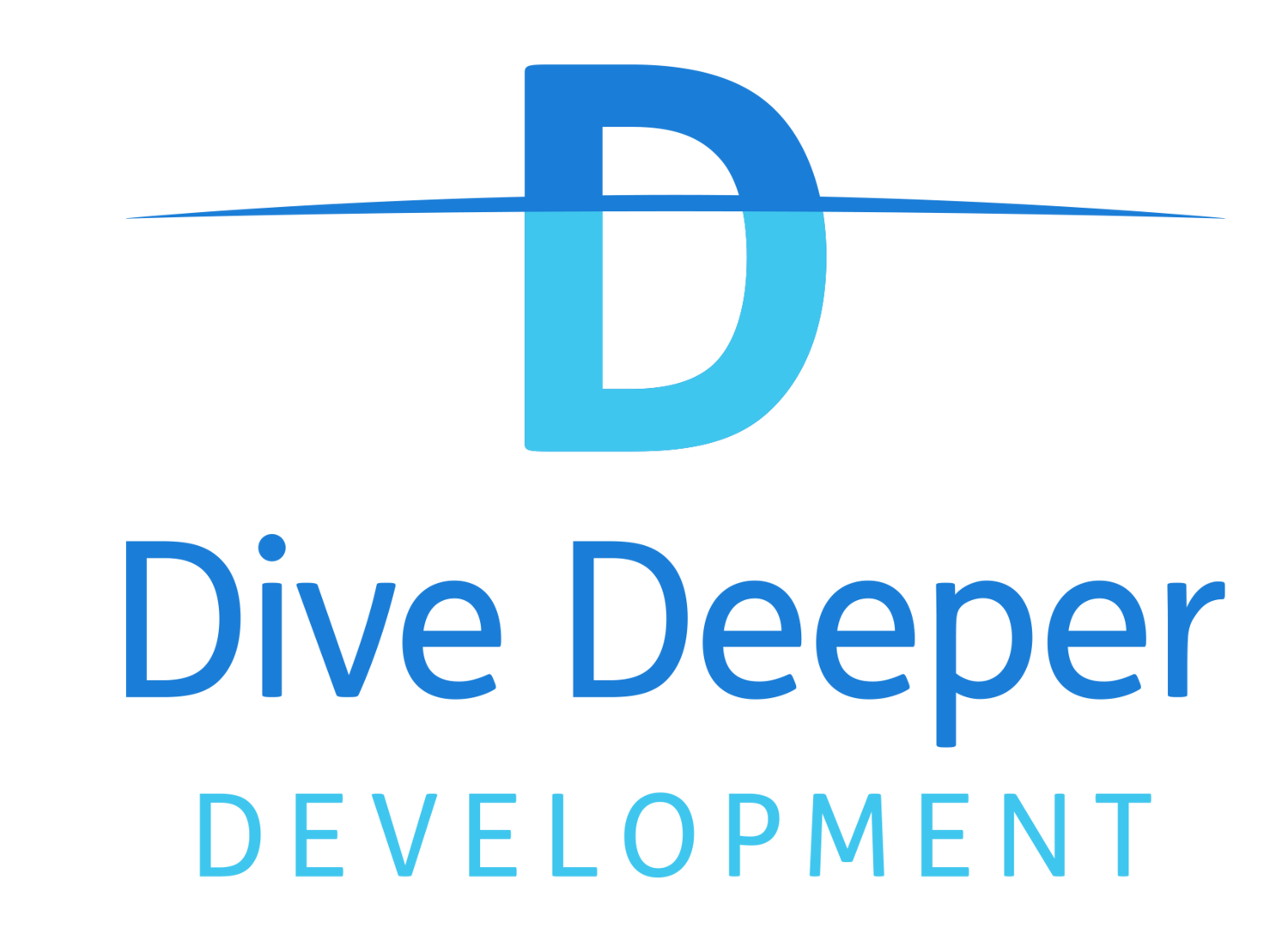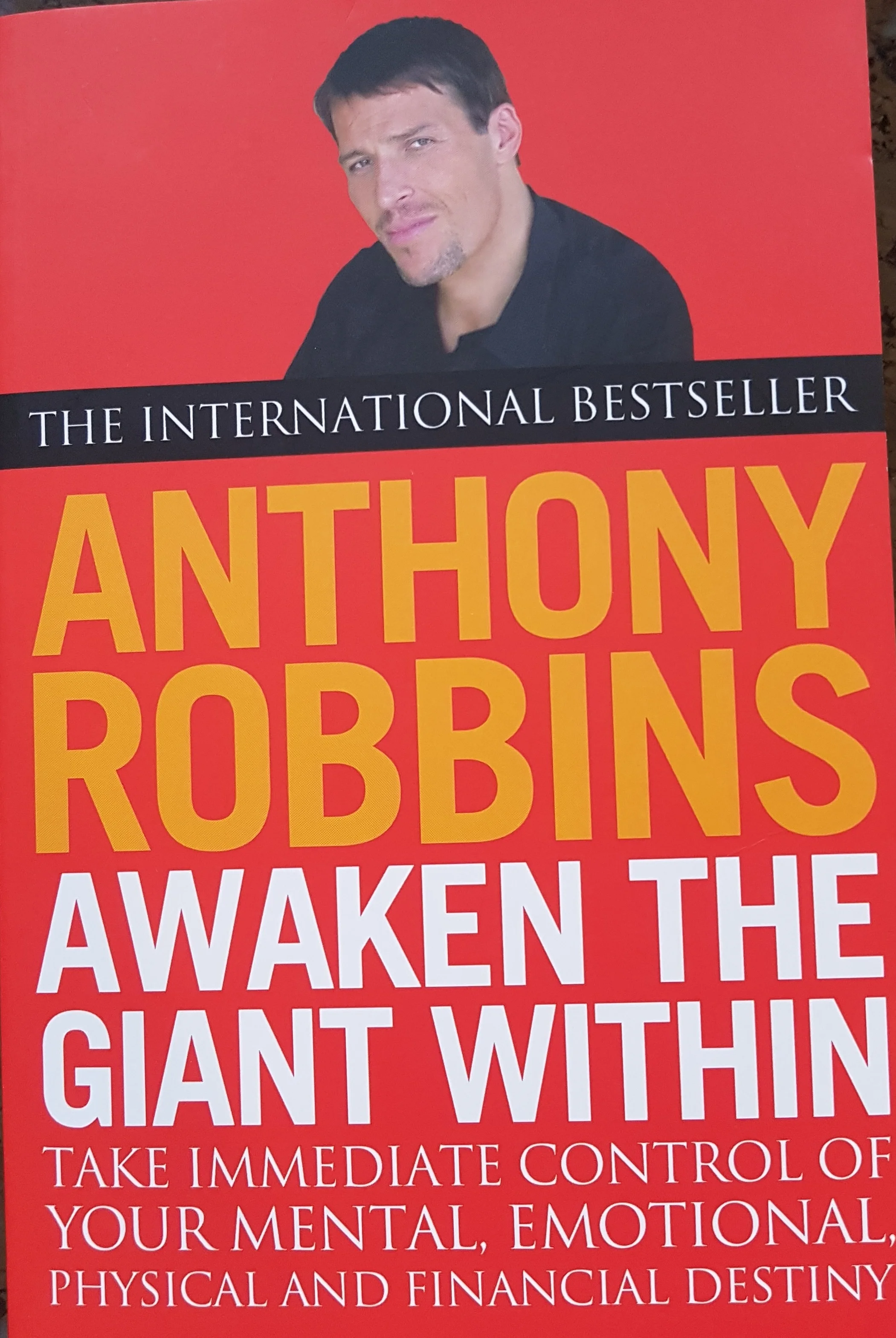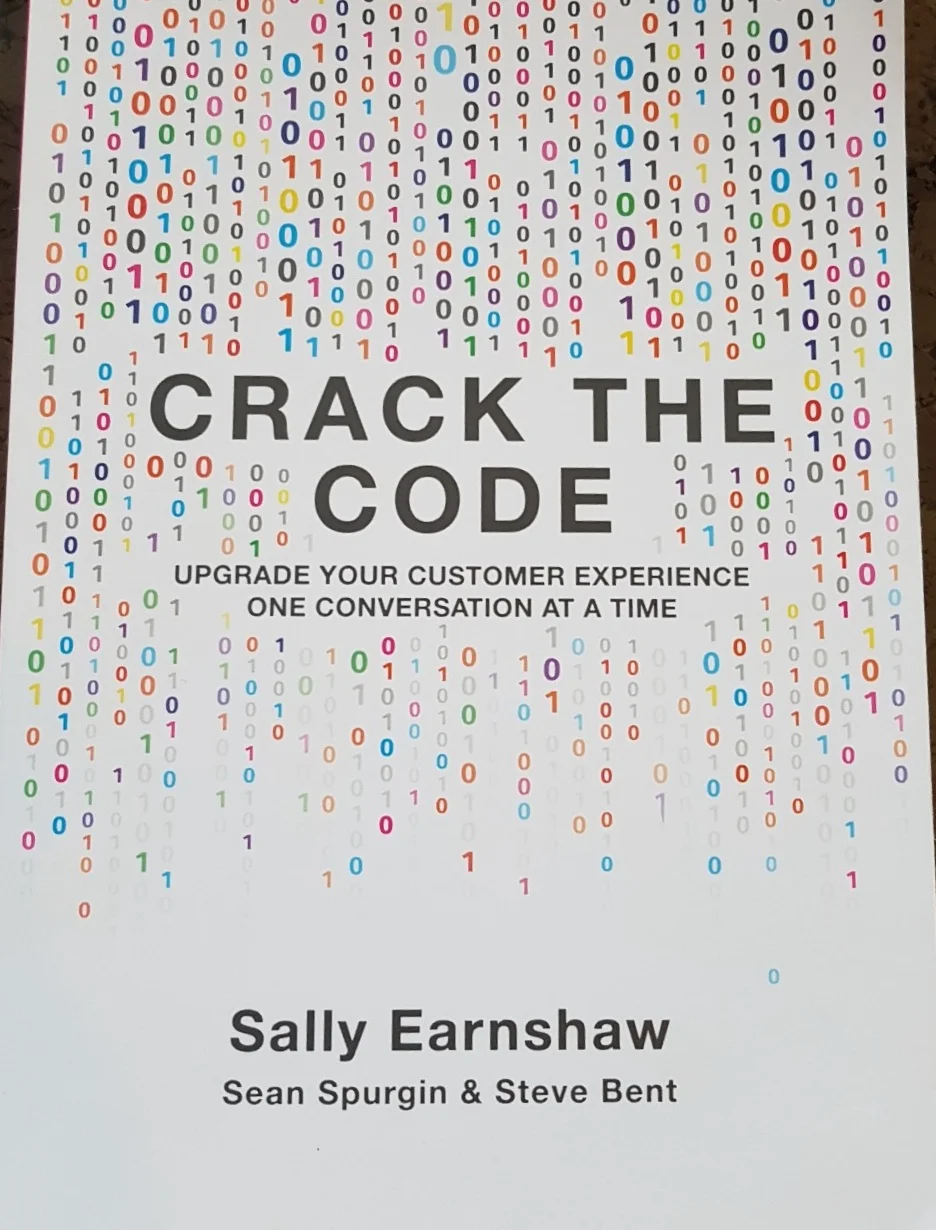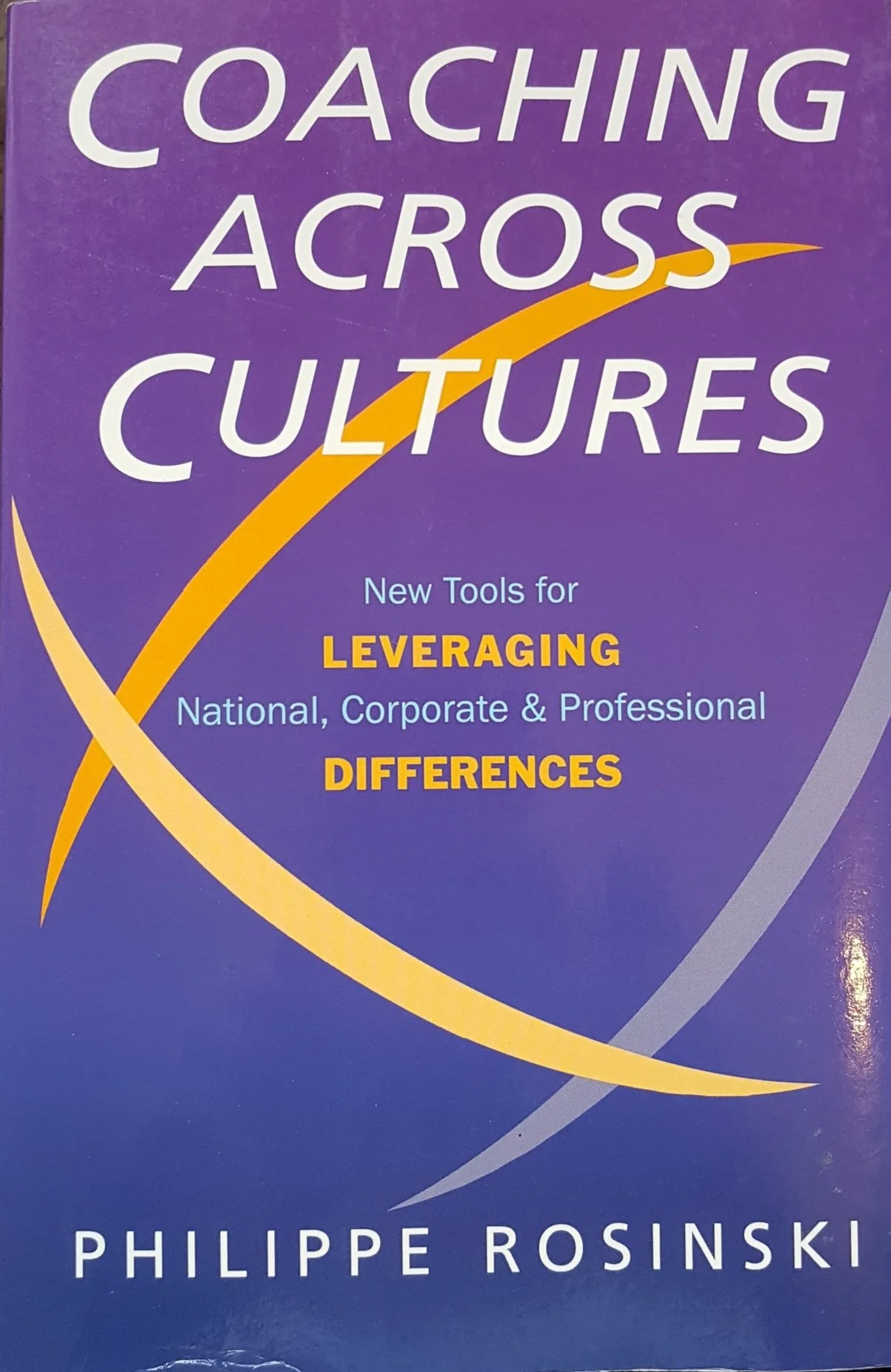Business Book Club: The ones that didn't make it
You may have been following my business book club blog over the last 12 months, where I've been reviewing the best self-improvement and business books and sharing the knowledge with you. What you might not know, is that there are a number of books that didn't quite make it. Not only did I read 12 books over the course of the year, I actually attempted a few more that I didn't get around to reviewing. So to finish off last years book blogging I've decided to give you an overview of the ones that didn't quite make it.
Here, I share the good, the bad, and the ugly of the books that didn’t make it.
Let's start with the good
Anthony Robbins: Awaken the Giant Within
This was actually the first book I read at the start of my challenge but I never ended up blogging it. The reason why is that this book was so good and so full of useful information, I wanted to share that information throughout the year in my blogs, videos and coaching sessions. I also knew I couldn't do it justice all in one blog.
The book was first published in 1991 so some of the references are a little dated but don't let that put you off. It was absolutely worth the read.
In this book, Tony Robbins talks about how to set goals, how to get what you really want and how to avoid being held hostage by your emotions so you can be in the driving seat for your life. He talks about the reasons why we are the way we are, uncovers the beliefs that create the world around us and explains how we can use our beliefs to create the life we want.
The book also contains a one week workshop where each day you change a different area of your life from the way you manage your emotions, to your fitness, your finances, your relationships, and ends up with a chapter on how you can make a difference to the world around you.
The book is an excellent introduction to understanding human behaviour. It’s great for those who need a little help for getting unstuck but also those who are happy with their lot in life and want to keep it that way. This book isn’t about ‘fixing’ anyone, it’s about creating more of what makes you happy. As I say, I couldn't really do it justice in one blog, but definitely worth a read.
The not so good (the meh)
Eben Pagan: Opportunity
Eben Pagan is an entrepreneur, blogger and now, an author. This is one of those books where you are given the book for free, you just have to pay for shipping so given how well thought of Eben seems to be I thought I'd take a gamble.
To be honest, I wasn't too enamoured with this book. It’s all about the opportunity that we have in the modern world. He points out that we are living in a time with more opportunity than ever before, which means we have infinite possibilities. Whereas before, there was only a finite amount of success to had, thanks to the internet we are now able to create value in a way that perhaps wasn't possible in the past.
Of course, this comes with difficulties as well opportunity, he talks about the challenge of ‘opportunity shock’ and the confusion that comes from having too many options. He shares how entrepreneurs and investors are turning changes into big opportunities and shares some of the models or thought processes that have helped make him a successful entrepreneur. I personally felt that there wasn't much in here that hasn't already been described by others in a much more engaging and inspiring manner. I did finish the book and I made a few notes but it didn't really inspire me or help me grow particularly in any way, which was disappointing.
I didn't feel it was worth blogging as I didn't feel there was a huge amount of valuable information to share from it.
The Ugly
John Dewey: How We Think
John Dewey was one of America's foremost philosophers and the reviews of this book assured me that it provides a good insight on how to think.
Dewey shares his views on the role of educators in training students how to think well. His says that knowledge is strictly relative to human interaction in the world and that people need thought training . He believed in taking a scientific approach to the intellectual development of young people.
I don't know whether it's because of the age of the book or something about the way that it's written but it's far too wordy the all the sentences and paragraphs are unnecessarily over complicated, it's a very, very difficult read. I don’t mean in an intellectual way, the concepts are easy enough to understand. It was just such hard work to read and wasn't really getting to the point. I didn't really feel it was shedding any light on how we think either. I couldn't finish it, which is incredibly rare for me because once I start to read a book, I’m generally determined to finish it, but I gave up on this one very, very quickly,
Honourable Mentions
Finally, there are some books that are worth a mention. These are books that I've read for research for professional purposes. As I didn't read them for personal development purposes and because some of them are a little niche, I never took the time to blog them but I’d still recommend them if any of them fall into one of your interests.
Sally Earnshaw (Sean Spurgin and Steve Bent): Crack the Code
Crack the code is all about improving the customer experience. What I really like about this book is that it not only helps leaders to shape the customer experience, but it also helps them to deliver great customer service by changing the way they lead their people. There is lots of fantastic information this book, much of which challenges conventional thinking, and at the end of each chapter there are clear summaries and calls to action for bringing the ideas to life. Definitely worth a look if you lead people in customer facing roles.
Phillip Rosinksi: Coaching Across Cultures
This book does what it says on the tin. It's all about coaching across cultures and it's brilliant. It describes the many ways that people from different cultures communicate and the various lenses through which different cultures see the world. He explores how to not just acknowledge these and work with them, but how to actually leverage these different models of the world for successful coaching. It also gives a practical guide for how to best understand your coachees and get the best from them.
Stella Ting-Toomey: Communicating Across Cultures
Like the coaching book above, Ting-Toomey explores the different lenses through which people see the world but she focuses on communication generally. She explores the way that people communicate, the assumptions that we make and also goes into non-verbal communication, cultural identity and even deals with conflict management across different cultures. It’s quite a weighty read but worth a look at if you are going to be regularly working with people from other cultures.
So that was my 2018 in books
I'm really pleased that I challenged myself to read a book a personal development book a month. I learned an awful lot last year. I came across a few books that weren't worthwhile reading, but I've read some absolute crackers as well. It's helped me grow as a person and professional and the act of blogging my books has been beneficial for me and helped to cement my learning. I’m glad to hear that it has been useful to other people as well in either helping them learn a few tips or helping them choose the books they want to read. It's definitely something I'm going to keep up over 2019 and I've already started on a really brilliant book for the coming year. So look out for my blog at the end of January.
Are there any books you think I should read? Then please do let me know. Equally if you want to ask me about any books that might be interesting to you, feel free to contact me in the comments below or by email.






